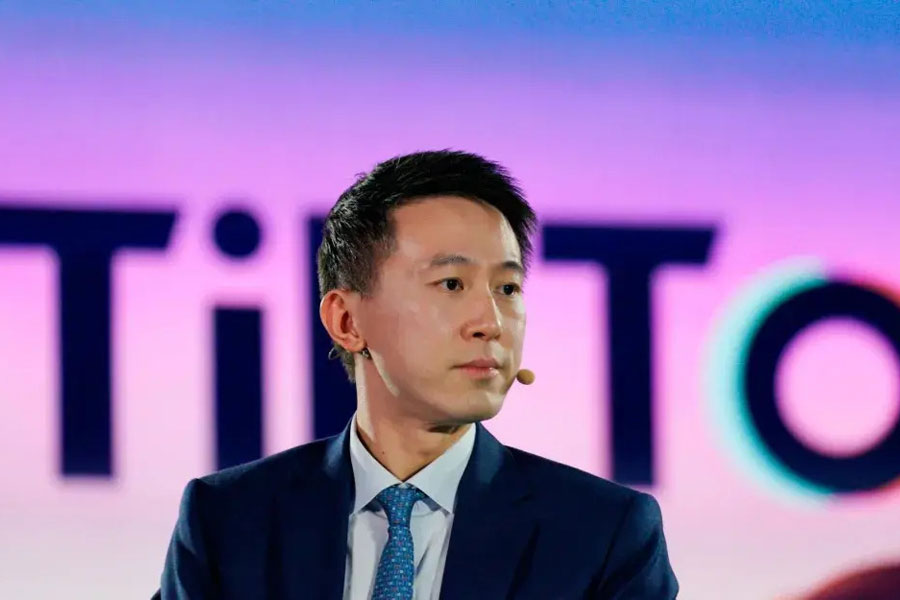As a seasoned SEO Professional with over 15 years of experience and a TikTok content creator with a modest following of 23k, I’ve witnessed firsthand the stark contrast between two behemoths of the digital landscape: Facebook and TikTok.
At the heart of this dichotomy lies the fundamental difference in how their algorithms operate. Facebook, once hailed as the pinnacle of social connectivity, has now become synonymous with discord and polarization. Its algorithm, designed to prioritize engagement and stir controversy, inadvertently fueled the spread of misinformation and exacerbated societal divides.
On the other hand, TikTok’s algorithm, epitomized by the For You Page (FYP), operates on a different wavelength altogether. It eschews the echo chambers of Facebook in favor of serendipitous content discovery. By leveraging machine learning and user interactions, TikTok’s algorithm curates a personalized feed tailored to individual preferences, transcending barriers of geography, language, and interests.
But what sets TikTok apart is not just its algorithmic prowess; it’s the sense of community it cultivates. Unlike Facebook’s emphasis on divisive content, TikTok fosters a spirit of camaraderie and inclusivity. Its algorithm actively promotes diverse voices, empowering creators from all walks of life to share their stories and connect with like-minded individuals.
TikTok’s Algorithm: The FYP Page
TikTok’s algorithm, epitomized by the For You Page (FYP), operates on a different wavelength altogether. It utilizes machine learning and user interactions to curate a personalized feed tailored to individual preferences. Through a combination of likes, shares, and watch time, TikTok’s algorithm surfaces content that users are likely to find engaging, transcending barriers of geography, language, and interests. This approach fosters serendipitous content discovery and promotes diverse voices, empowering creators to share their stories and connect with like-minded individuals (source).
There are several vibrant online communities thriving on TikTok, such as:
- BookTok: A paradise for bibliophiles, this community is bustling with book recommendations, reviews, and literary discussions. Personally, I purchased around five books in 2023 based on #BookTok recommendations. Although I found ‘The Fourth Wing’ somewhat disappointing, the rest were delightful.
- CookingTok/FoodTok: This community serves as a sanctuary for food enthusiasts, from amateur chefs to culinary experts. It has a way of drawing you in, and I’ve tried several recipes shared here. Despite not being the most skilled cook, TikTokers make the process seem effortless.
- PetTok: This might be my favorite TikTok community. It’s challenging to scroll past without liking the adorable pet videos. Some influencers within this community are incredibly creative with their pets, to the point where their pets earn more than the average American through partnerships.
These examples merely scratch the surface of what’s available on TikTok. The platform’s algorithm tailors the For You Page (FYP) to your interests, based on your likes, comments, and shares. There’s no need to worry about memorizing hashtags—the FYP is customized, well, for you.
Facebook’s Algorithm: Societal Discourse
Conversely, Facebook’s algorithm, once celebrated for its ability to connect people, has become synonymous with discord and polarization. Designed to prioritize engagement and stir controversy, Facebook’s algorithm inadvertently fueled the spread of misinformation and exacerbated societal divides. By prioritizing divisive content over meaningful connections, Facebook has struggled to maintain user trust and combat the spread of harmful narratives.
Here are some examples of Facebook, intentionally sowing discourse:
- The Rohingya Crisis: One of the most significant examples of Facebook’s impact on societal issues is its role in the Rohingya crisis in Myanmar. While specific posts are not accessible through this platform, it’s well-documented by international organizations and investigative reports that Facebook was used to spread hate speech and misinformation against the Rohingya Muslims. This contributed to the escalation of violence and human rights abuses against this minority group. Facebook later admitted its platform was used to incite violence in Myanmar, showcasing a direct instance where the platform’s algorithms and content moderation practices had real-world, harmful consequences.
- The 2016 US Presidential Election: Facebook was a significant battleground for misinformation and foreign interference during the 2016 US Presidential election. Russian operatives used Facebook to spread divisive content, targeting polarizing issues such as race, immigration, and gun rights, aiming to sow discord among the US electorate.
- The Ethiopian Ethnic Violence: Reports have indicated that Facebook’s platform was used to fuel ethnic violence in Ethiopia, particularly in the context of the Tigray conflict. Hate speech and calls to violence against ethnic groups were spread on the platform, exacerbating tensions and contributing to real-world violence. This situation highlighted the challenges Facebook faces in moderating content in languages and regions where it may not have sufficient expertise.
- The Delhi Riots in India: Social media, including Facebook, played a role in the 2020 Delhi riots, where posts and messages spreading hate speech and misinformation contributed to the violence. Critics argue that Facebook did not act swiftly enough to remove inflammatory content that incited violence between Hindu and Muslim communities. In restrospect, Facebook did not act swiftly enough because their algorithm was it was intended to to.
Data Privacy Concerns: A Tale of Two Approaches
One of the main reasons people tend to trust TikTok over Facebook concerns data privacy and the handling of personal information. Despite both platforms collecting vast amounts of user data, the perception of how this data is managed and utilized plays a critical role in shaping user trust. Facebook has faced numerous high-profile data privacy scandals over the years, most notably the Cambridge Analytica scandal, where the data of millions of Facebook users was harvested without consent for political advertising. Such incidents have eroded public trust in Facebook and, by extension, other US-based tech companies, making users skeptical of their data privacy practices.
In contrast, while TikTok (owned by the Chinese company ByteDance) also raises data privacy concerns, especially among Western governments wary of potential data sharing with the Chinese government, the platform has made concerted efforts to distance its operations from Chinese data regulations. TikTok has attempted to reassure its global user base by storing data in servers located outside of China and implementing strict data access controls. These measures, coupled with a lack of high-profile data misuse scandals akin to Facebook’s, have contributed to a perception among users that TikTok is more respectful of their privacy, despite ongoing debates among cybersecurity experts and policymakers.









